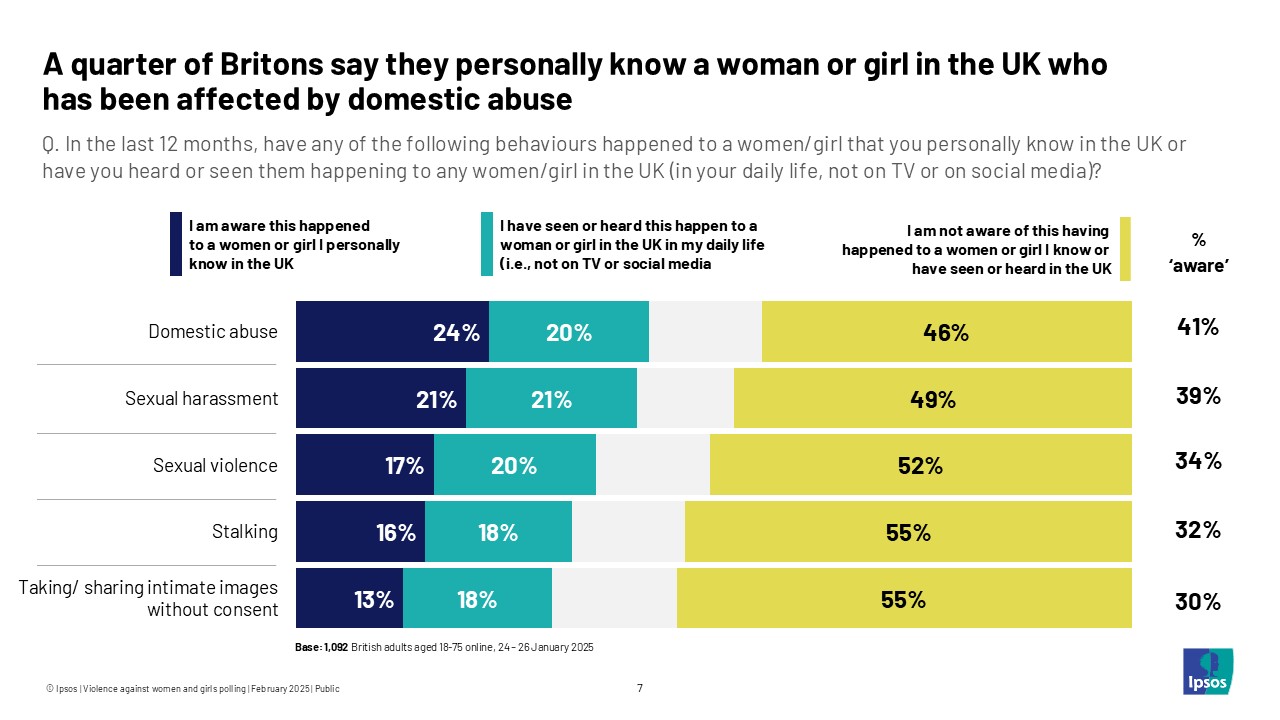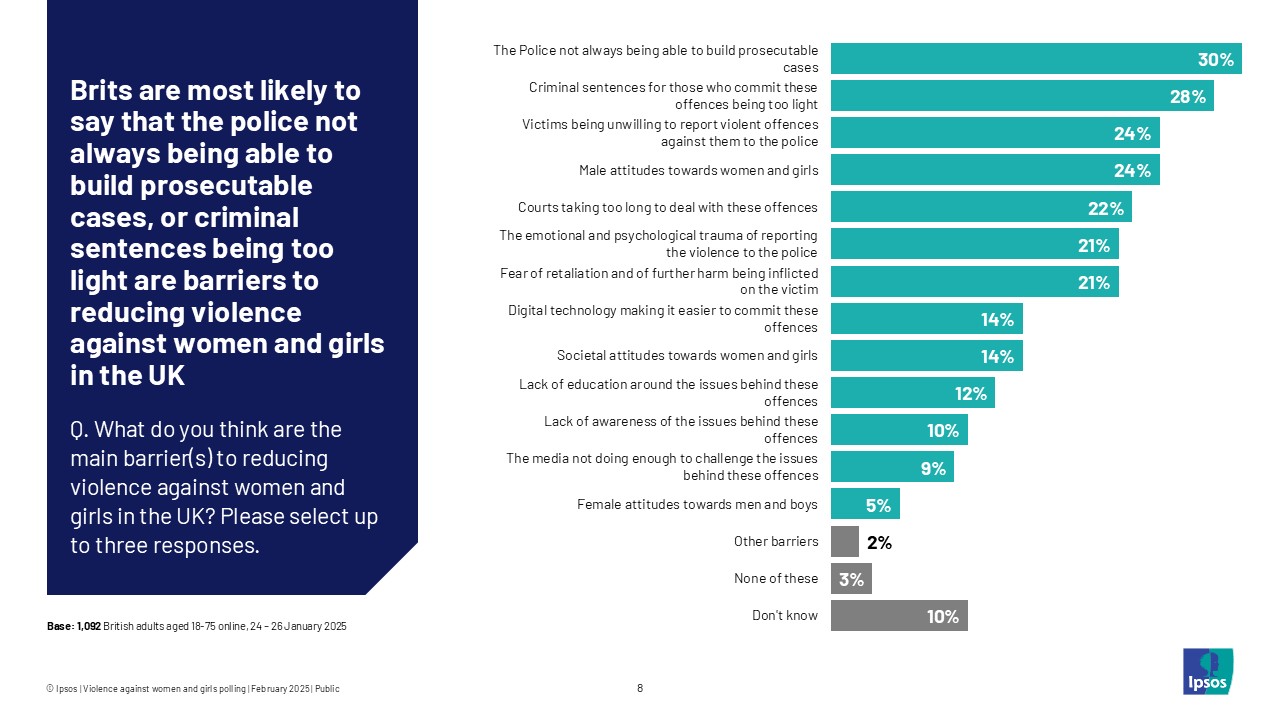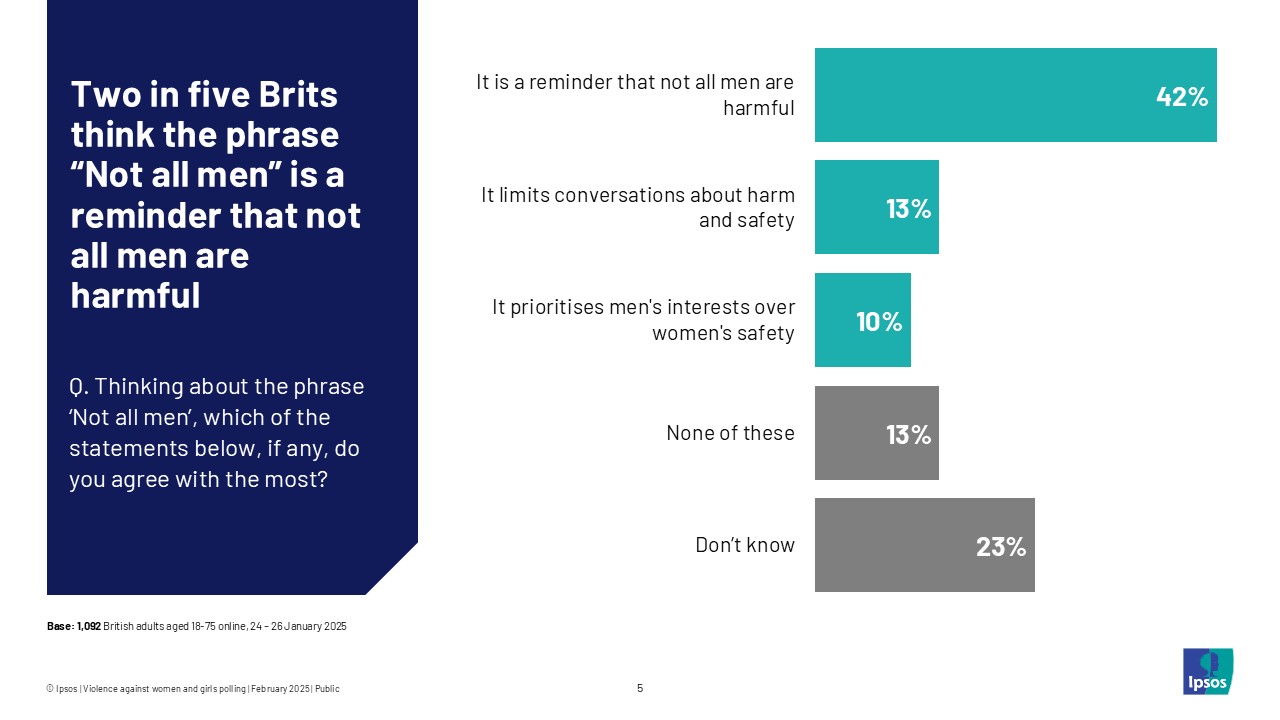Awareness of violence against women high, but action lags, finds new Ipsos survey
A new Ipsos UK survey sheds light on public opinion on the barriers to reducing violence against women and girls, as well as perceptions of the phrase "not all men" in the context of conversations around this topic.
Addressing the barriers to reducing violence against women and girls
- Violence against women and girls: Whilst over three in five (63%) think public awareness of violence against women and girls is increasing, half (51%) think levels of violence against women and girls are also increasing. Just under half think that levels of toxic masculinity (48%) and misogyny (47%) are increasing, while four in ten (40%) think that the normalisation of violence against women and girls is on the rise.
- Personal experiences with violence: A quarter (24%) of those surveyed shared that they personally know a woman or girl who has experienced domestic abuse in the UK within the last 12 months.

- Barriers to reducing violence: The most frequently perceived barriers to reducing violence against women and girls include police inability to build prosecutable cases (30%) and inadequate criminal sentences (28%). Perceptions of victims' reluctance to report offenses and male attitudes towards women follow closely behind at 24% each.

- Justice system ineffectiveness: Six in ten (60%) Britons believe that the UK justice system's response to violence against women and girls is ineffective. 55% believe that the police response is ineffective.
- Role of traditional media: While 71% believe traditional media should play a role in reducing violence against women and girls, 38% feel that traditional media coverage ignores the underlying issues contributing to this problem.
Perceptions of the phrase “not all men”
- Awareness of the phrase "not all men": Almost half (48%) of Britons are familiar with the phrase "Not all men." Younger individuals (aged 18-34) exhibit higher awareness (72%) compared to older age groups.
- Usage of the phrase: While over half (57%) of young adults (18-34) have heard or seen others use the phrase "not all men" in discussions about violence against women and girls, only a quarter (34%) of Brits in this age group use the phrase themselves either often or sometimes. This reduces to 23% among all age groups surveyed.
- Perceptions of the phrase: Two in five (42%) Britons believe the phrase serves as a reminder that not all men are harmful. However, 13% feel it hinders conversations about harm and safety, and 10% believe it prioritises men's interests over women's safety.

Caroline Paskell, Research Director at Ipsos said:
This new research is a stark reminder of the pervasiveness of violence against women and girls in the UK. Even thinking only about those women and girls who they know personally, a quarter of people are aware of someone who has been a victim of domestic abuse in the previous 12 months – and two-fifths know a women or girl who has been a victim of sexual harassment over that time. While it's positive that more people are aware of this issue, the fact that half of the public believes violence is increasing shows that awareness alone is not enough. The findings around the phrase 'not all men' also highlight the complexities of this concept, with a significant minority feeling it's unhelpful and potentially dismissive of women's experiences. It's clear that tackling this issue requires a multifaceted approach, addressing the root causes of violence, improving the justice system's response, and fostering a societal shift that prioritises women's safety and well-being.
Technical note:
- Ipsos interviewed a representative sample of 1,092 online British adults aged 18-75 across Great Britain between 24th - 26th January 2025.
- Data are weighted to match the profile of the population. All polls are subject to a wide range of potential sources of error.



